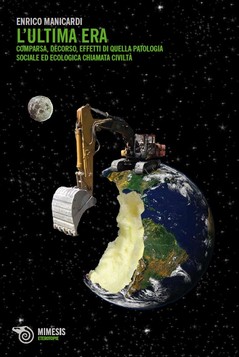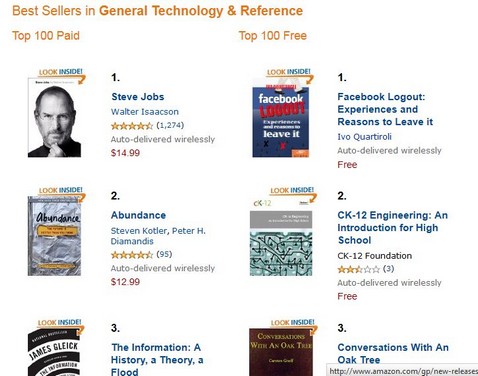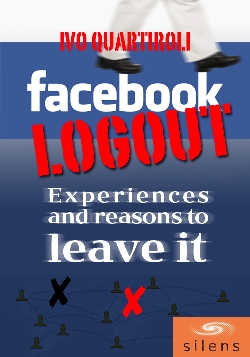In recent years, for various reasons, I have had to pack my books several times (moving residences or moving some of them to the basement to occupy less space at home). Having thousands of books means lengthy related tasks and heavy boxes to carry.
If all of my printed books were digitally squeezed into an ebook reader, I would carry minimal weight and could access them wherever I went; I would have my complete library at my fingertips. I could also free some space in my house. Nonetheless, I do not regret having purchased and carried my paper books.
Recently, I wanted to try an ebook reader and bought a number of ebooks, especially for traveling. However, I ended up also buying the printed edition, even though this meant carrying they physical books back and forth between Europe and Asia.
Printed books offer a freedom that is still unsurpassed by digital technology. Now that summer is approaching, I can leave my printed books on the beach without fear that they will be damaged by sand or a ball, or be stolen. Coffee and other liquids can stain a paper book but the book will not be completely damaged.
Having a baby around paper books is not a problem. The baby may tear a few pages, stain or step on the book, or use the book as a toy, but the usefulness of the paper book remains. A paper book as an “analogical” technology degrades gracefully, but digital technologies either work or do not work.
Reading a printed book in the sun is easier than reading a screen, despite the best and most impressive advances in screen technology.
When electricity will be interrupted because of energy prices, and I cannot recharge my electronic gadgets, my paper books are still available for reading.
When the failure of only one electronic component jeopardizes an entire ebook reader, my paper books are still around, even though they may be yellowish, damp, or have torn pages.
If I cannot afford to upgrade to ever more sophisticated iPads and Kindles, my paper books will not need an upgrade. When the rare earth metals required for electronics are gone, paper books will be cheaper than their electronic counterparts, when considering the price of the hardware. Paper is a highly renewable resource if used with the right criteria.
A few companies control the ebook market and governments are able to know and potentially control the types of books we read by deciding on what’s good and what’s not good and by interfering with our uploads. If this happens (we are not that far from its occurrence), I will still be able to read my preferred paper books. Prohibited or controversial paper books have always been available, even under the most repressive regimes (though with greater difficulty), whereas electronic information can be easily traced and blocked.
My printed books simply need to be carried, whereas an electronic reader requires the right lighting conditions, electricity or batteries, cables, and often an Internet connection.
My printed books age with me, whereas an ebook reader becomes obsolete and needs to be replaced at regular intervals. My paper books do not blink, do not require Internet connections, do not see others’ annotations and comments, do not connect with readers’ social networks, do not talk, and do not do anything except exist to be read.
Thus the words from a printed book can resound inwardly because of the surrounding emptiness, like the beats from a well-tuned drum.
Negli ultimi anni, per varie ragioni, mi sono trovare ad inscatolare i miei libri in diverse occasioni (anche solo per spostarne una parte in cantina quando stavano invadendo la casa). Avendo migliaia di libri, significa tanto lavoro e scatole pesanti da maneggiare.
Se tutti i miei libri si trovassero in formato digitale all’interno di un lettore ebook, il peso totale sarebbe insignificante e potrei accedere a tutta la mia biblioteca ovunque mi trovassi. Inoltre potrei liberare spazio in casa. Ciò nonostante, non rimpiango di aver acquistato e di aver trasportato i miei libri stampati.
Recentemente ho voluto provare a leggere su ebook invece che su carta, in particolare durante gli spostamenti. Però alla fine ho acquistato anche la versione stampata, non tanto per una visione nostalgica dei libri, ma perchè con il lettore digitale non potevo immergermi nella lettura. Sono ritornato alla carta anche se questo comportava portarmi del peso avanti e indietro tra viaggi e spostamenti.
I libri stampati offrono un grado di libertà che non è stato ancora superato dalle tecnologie digitali. Ora che sta arrivando l’estate, posso lasciare i miei libri cartacei in spiaggia senza timore che possano essere danneggiati dalla sabbia, da una palla o che vengano rubati. Una bibita o altri liquidi possono macchiare un libro ma questo non potrà essere danneggiato più di un tanto.
Un bimbo che gira intorno ai libri stampati non rappresenta un problema. Il bimbo potrà forse strapparne alcune pagine, sporcarlo o camminare sul libro, oppure usarlo come un giocattolo, ma la funzione del libro rimane. Un libro cartaceo, in quanto tecnologia “analogica”, degrada con grazia, mentre le tecnologie digitali o funzionano o non funzionano.
Leggere un libro stampato al sole è meglio che leggerlo su uno schermo, nonostante i migliori sviluppi nenella tecnologia degli schermi.
Se e quando l’elettricità verrà interrotta a causa dei problemi legati all’energia, e non potrò ricaricare i miei gadget elettronici, i miei libri saranno ancora disponibili per essere letti.
Se il guasto di un solo componente elettronico rende l’intero lettore ebook inservibile, i libri di carta saranno ancora lì, anche se un po’ ingialliti, umidi o con pagine sciupate.
Se non potrò permettermi di acquistare gli ultimi, sempre più sofisticati iPad o Kindle, i miei libri stampati non necessiteranno di alcun upgrade.
Quando i metalli rari necessari per l’industria elettronica saranno finiti, stampare un libro costerà meno del suo corrispondente elettronico, se consideriamo anche il costo dell’hardware. La carta e’ una risorsa altamente rinnovabile se utilizzata con i giusti criteri.
Poche aziende controllano il mercato degli ebook ed i governi sono in grado di conoscere e potenzialmente di controllare i libri che leggiamo decidendo ciò che è buono e ciò che non lo è interferendo con i nostri upload. Se arriviamo a questo, sarò ancora in grado di leggere i miei libri preferiti. Libri proibiti o controversi sono sempre stati disponibili anche sotto ai regimi più repressivi (tuttavia con maggiori difficoltà), mentre i formati elettronici possono essere tracciati e bloccati con facilità.
I libri stampati devono essere semplicemente portati con sè, mentre un lettore elettronico richiede più conoscenze tecniche, elettricità o batterie, cavi e spesso una connessione Internet.
I libri stampati invecchiano insieme a me, mentre un lettore ebook diventa obsoleto e necessita di essere rimpiazzato ad intervalli regolari.
I libri stampati non lampeggiano, non richiedono Internet, non mostrano le note e i commenti delle altre persone, non si connettono con i social networks dei lettori, non parlano, e non fanno nient’altro che essere letti.
Quindi le parole che escono da un libro stampato possono riverberare internamente a causa del vuoto circostante, come il battito di un tamburo ben accordato.



